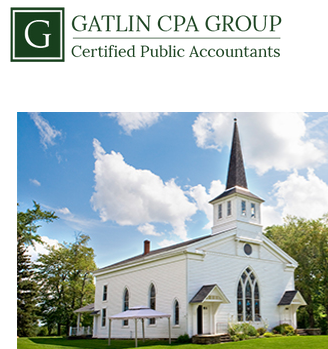

Why Your Website Provider Should Be Privately Owned—Not Private Equity-Backed
| |
In today’s digital landscape, your accounting website provider is more than just a service—it's a long-term partner in your business success. However, not all providers are created equal, and one of the biggest differentiators is ownership. A privately owned website provider operates very differently from one backed by private equity (PE), and these differences can directly impact your business. Here’s why you should choose a privately owned provider over a PE-backed one.
1. Stability and Long-Term Commitment
Privately owned companies are typically run by founders or long-term leaders who prioritize sustainable growth and customer relationships. In contrast, private equity firms operate with a short-term investment horizon, often flipping businesses within 3–5 years. This means a PE-backed provider may undergo frequent ownership changes, leading to instability in pricing, service quality, and overall direction.
2. Customer-Centric Approach
Private ownership often means decisions are made with customers in mind, rather than solely for shareholder returns. Private equity firms, on the other hand, prioritize maximizing profits, which can result in cost-cutting measures such as reduced customer support, fewer product innovations, and unexpected price hikes.
3. Consistent Pricing and Value
Private equity firms focus on increasing profitability, often by raising prices or introducing hidden fees. A privately owned website provider, however, is more likely to offer transparent pricing and steady value because they are not pressured by external investors to maximize short-term returns.
4. Better Customer Support
With a privately owned provider, you’re more likely to receive high-quality, personalized customer service. PE-backed firms often streamline operations to cut costs, which can lead to outsourced or understaffed support teams. If you rely on prompt and knowledgeable customer service especially during tax season, private ownership is the way to go.
5. Focus on Innovation, Not Just Profits
Privately owned companies tend to reinvest in their products, services, and employees, ensuring continuous innovation and improvement. A PE-backed provider, however, may cut back on research and development to boost profitability before selling the company, leaving you with outdated services and fewer advancements.
6. Ownership That Understands Your Needs
Founders and private owners often have a deep understanding of their industry and customers, making strategic decisions that align with long-term success. In contrast, private equity investors typically lack industry expertise and make decisions based on financial models rather than customer experience.
7. Avoid the Risk of a Sell-Off
Private equity firms acquire companies to eventually sell them at a profit. This means your provider could be sold to another investor, or even a company with conflicting business goals. This unpredictability can disrupt your service, pricing, and support—leaving you scrambling for a new provider.
Conclusion
Choosing a website provider isn’t just about features and pricing—it’s about trust, stability, and long-term reliability. A privately owned provider is more likely to put customers first, prioritize innovation, and provide consistent service without the looming threat of ownership changes. Before committing to a provider, always research who owns the company and consider the long-term implications of their business model.
Would you trust your website’s future to a provider that sees you as a long-term partner, or one that views you as a stepping stone to a quick profit? The choice is clear.
Build Your Firm Ownership
At Build Your Firm, we are owned by an accountant, Allan Ratafia, and marketer, Hugh Duffy. Two owners who started the company in 2003 and have operated the business with zero debt. Many of their first clients are still clients and now have flourishing accounting practices.

